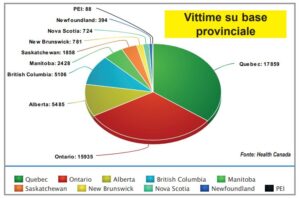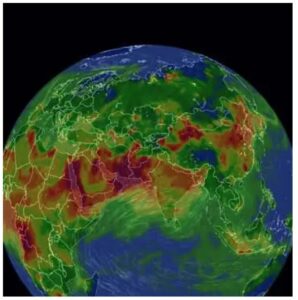TORONTO – For three of Canada’s provincial leaders, election season is near. Scott Moe of Saskatchewan and David Eby of British Columbia enter the October contests in a relatively strong position, with the approval of about half of their respective voters. For Premier Blaine Higgs in New Brunswick, instead, the path to re-election seems steeper: Higgs is currently the least popular provincial leader in the entire country.
This is what emerges from the approval ranking of Canada’s provincial premiers, drawn up by the Angus Reid Institute, with data updated to March 2024.
Let’s start with Doug Ford, premier of Ontario. Last month, he reiterated that he intends to “Get It Done” by introducing new legislation to simplify infrastructure projects, shorten environmental assessments, speed up approval processes, in order to build more, and faster. With the “hunger” for homes that exists, it should be a popular decision, but evidently it was not enough to revive Ford’s approval after the various scandals, controversies and about-faces: the Greenbelt, the Region of Peel, the law on wage limitation… long gone are the times (spring/summer 2020) when Ford’s popularity was close to 70%, now he has to settle for 34%, a percentage that he’s not able to exceed from the end of 2022.
Then there are the three prime ministers “on the cusp” of elections, in the provinces where elections will be held soon (in October): Saskatchewan, British Columbia and New Brunswick.
Premier Scott Moe of Saskatchewan remains among the most popular leaders in the country (he is one of only two leaders to exceed the majority threshold this quarter: 53%) and among his most popular moves is, certainly, the decision to not collect the carbon tax and distribute discounts to residents. An initiative that infuriated the federal government, but which earned points for the conservative Moe.
The premier of B.C. is doing well: David Eby of the NDP, approved by about half of residents (48%), a percentage that has remained unchanged for over a year now. The Eby government has announced significant new spending on housing and various affordability relief in its 2024 budget, which will project a deficit of more than $7 billion for 2024/25 (around double the projection outlined in the 2024 budget). 2023). Someone defined it as “the party’s electoral platform”.
Instead, the premier of New Brunswick, Blaine Higgs, a conservative, is doing badly and is preparing to face the elections as the least popular prime minister in the country: Higgs is in fact “liked” by only 31% of the residents of his province. In recent months, he has defended parents’ rights against LGBTQ2+ policies in schools and recently invested $75 million in funding for affordability – two initiatives that have earned him some points, given that a year ago it had dropped to 25%. But it is still light years away from that 80% of popularity achieved in the now very distant 2020.
And who is Canada’s most popular prime minister? Wab Kinew, NDP, premier of Manitoba, son of a First Nation chief: for him, the approval rating as of March 2024 is 63%. He’s “on his honeymoon” because he was recently elected, and he will present his first budget on April 2: apparently, it will focus on healthcare and low-carbon energy investments. Let’s see if his policies will confirm him as Canada’s most loved prime minister.
The others (Smith, Furey and Houston) “float” between 40 and 50 percent, while Legault is second to last at 32% where he plummeted within a year after losing over twenty points. A disaster.
To see the complete report, click here: Premiers’ Performance: In election year, half approve of Moe and Eby, Higgs has steep hill to climb – Angus Reid Institute
Above, the graph created by the Angus Reid Institute (from https://angusreid.org)






